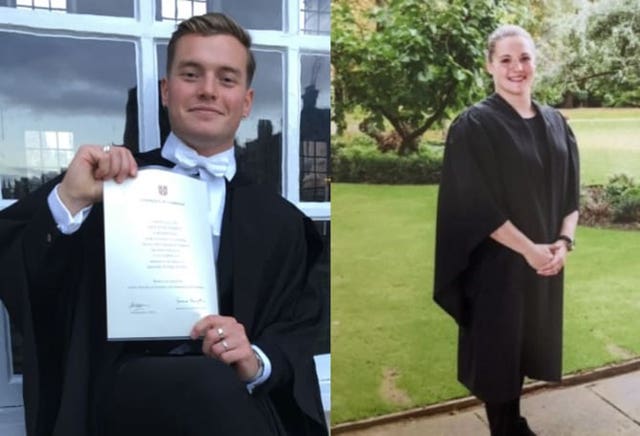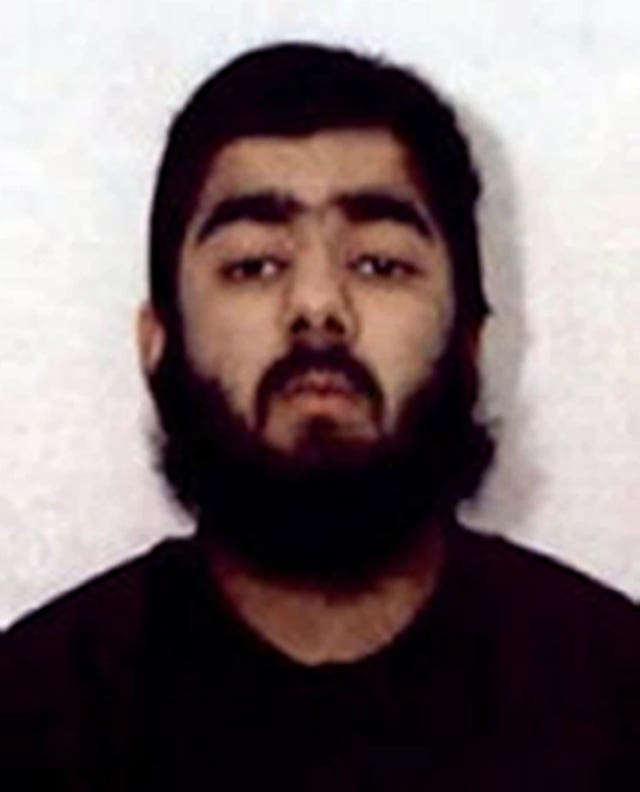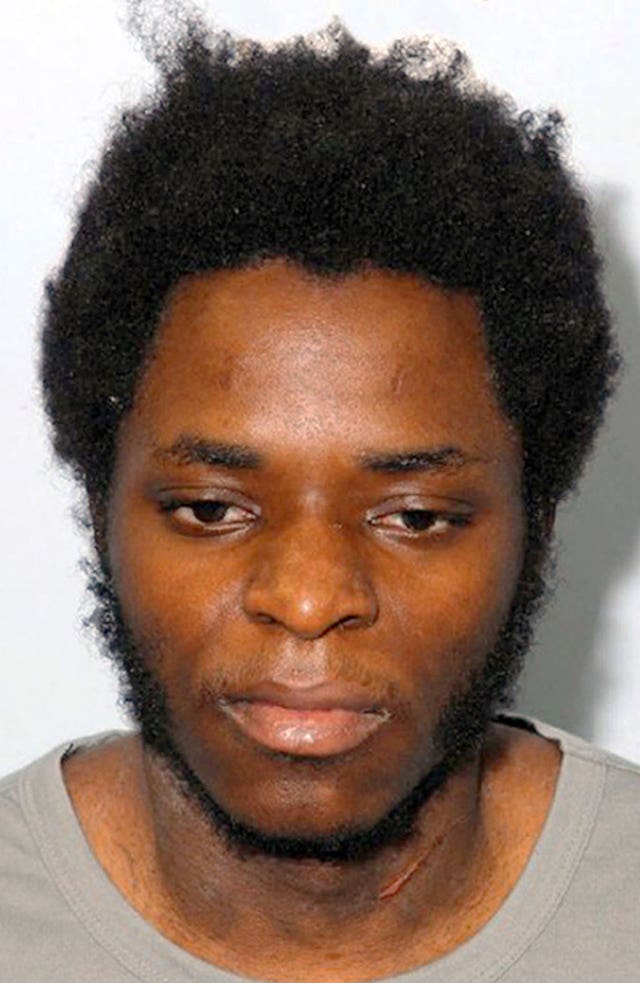Risk of Fishmongers’ Hall trip not raised despite Stafford terrorist’s history – inquest
The risk of convicted Stafford terrorist Usman Khan attending an event at Fishmongers’ Hall was not raised before he ran amok and stabbed two young people to death, an inquest has heard.

During his eight years in seven prisons, Khan, 28, was involved in a string of violent incidents and “extremist bullying”, London’s Guildhall was told.
Jurors were told Khan had been an “influential” inmate who associated with other high-profile terrorists including Fusilier Lee Rigby’s killer.
Eleven months after his release, Khan killed Cambridge graduates Jack Merritt, 25, and Saskia Jones, 23, at a Learning Together prisoners’ educational event at Fishmongers’ Hall in London.

Beforehand, there had been discussion about the risks of Khan learning to drive a dumper truck, but not of him travelling to London to attend the event, jurors heard.
On Tuesday, senior investigating officer Detective Chief Inspector Dan Brown gave evidence about Khan’s life and long history of extremism in and out of prison.
Born in Stoke-on-Trent, Khan was excluded from school at the age of 13 following an assault on a fellow pupil.
In his teens, he became interested in the extreme Islamic views of prominent figures Anwar Al-Awlaki and Anjem Choudary, the leader of terrorist organisation al-Muhajiroun (ALM).
In 2008, he preached in Stoke on behalf of ALM and police raided the address where he was living, jurors heard.
Afterwards, Khan said he was born and bred in Stoke, and insisted: “I ain’t no terrorist.”
But within years, Khan was one of nine men from London, Stoke and Cardiff to be convicted of terrorism offences.
Khan admitted engaging in conduct in preparation of terrorist acts by plotting to set up a terrorist training camp in Pakistan which might send fighters back to the UK.
In February 2012, Khan was handed an indeterminate sentence which was varied upon appeal to an extended sentence.

It meant Khan had to serve eight years in custody but no longer needed the approval of the Parole Board before his release, the court heard.
Jurors were told that Khan became a senior figure among extremists in prison and was categorised as a “high risk”.
In January 2011, Khan suggested he had access to a weapon and would “do someone in the eye or neck” and wanted to die and go to paradise, jurors heard.
In March 2011, Khan was involved in an attack on another prisoner to shouts of “Allahu Akbar”, Mr Brown said.
The same year, Khan shouted during the two-minute silence for Armistice Day.
In June 2012, Khan recited a poem which included the line “cut off the kuffar’s head”, the court heard.
In May 2013, a stockpile of chemicals was found in Khan’s cell which would not have been capable of making an IED but was still “very concerning”, Mr Brown said.
In November of that year, a Church of England chaplain was caught up in an assault by Khan on another prisoner.
The same day, a razor blade was found in his cell, the court heard.
In 2017, while at HMP Whitemoor, Khan remained a high risk, Mr Brown said.
While his behaviour was noted as “acceptable” with “no recent adjudications”, evidence suggested he continued to harbour extremist attitudes and deliberately “told lies or ticked boxes to achieve progression”.
In March 2017, Khan talked about his Muslim faith with Michael Adebowale, who beheaded Fusilier Rigby, jurors heard.

By June of that year, Khan was regarded as an “influential” terrorist prisoner involved in “extremist bullying”, Mr Brown said.
In October 2018, intelligence on Khan suggested he would “return to his old ways”.
Meanwhile, he was said to have engaged “positively” with Learning Together, jurors heard.
Following his release from prison on licence, Khan’s progress was discussed in a series of Multi-Agency Public Protection Arrangements (Mappa) meetings.
Jurors heard that the idea of Khan learning to drive a dumper truck to help his employment chances was “deemed not appropriate” due to the risk it presented.
However, when the subject of him attending the Learning Together event in London came up, there was no discussion of the risk that could pose, the court heard.
At a final Mappa meeting on November 14 2019, Khan’s probation officer noted he was “always cheerful in his presentation” and there was no concern for his mental health.
The arrangements for Khan to travel to London on November 29 and be met at Euston station were mentioned, jurors were told.
Jonathan Hough QC, counsel for the coroner, said consideration of the trip referred to “logistics rather than risks”.
Mr Brown replied: “It looks like it’s decided already, yes.”
Khan, who was originally from Stoke, was living at flats on Wolverhampton Road, Stafford, before the attack. He was released from prison on licence in December 2018, halfway through a 16-year prison sentence, after he was convicted of terror offences in February 2012.
The jury inquests into the deaths of Ms Jones and Mr Merritt, taking place before coroner Mark Lucraft QC, continue.





